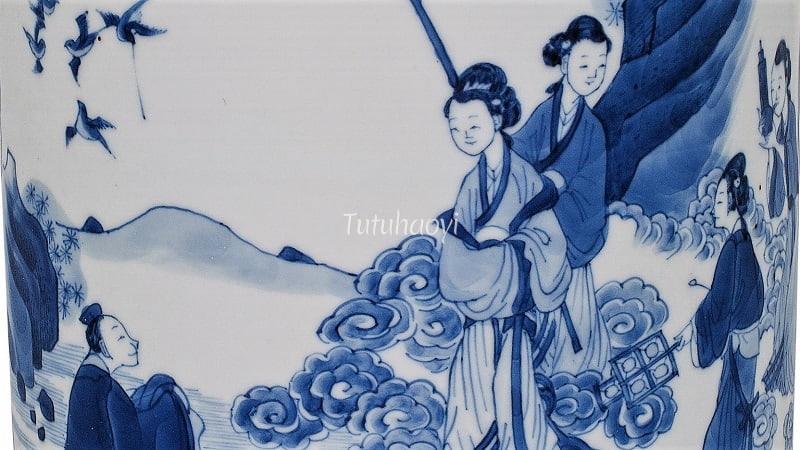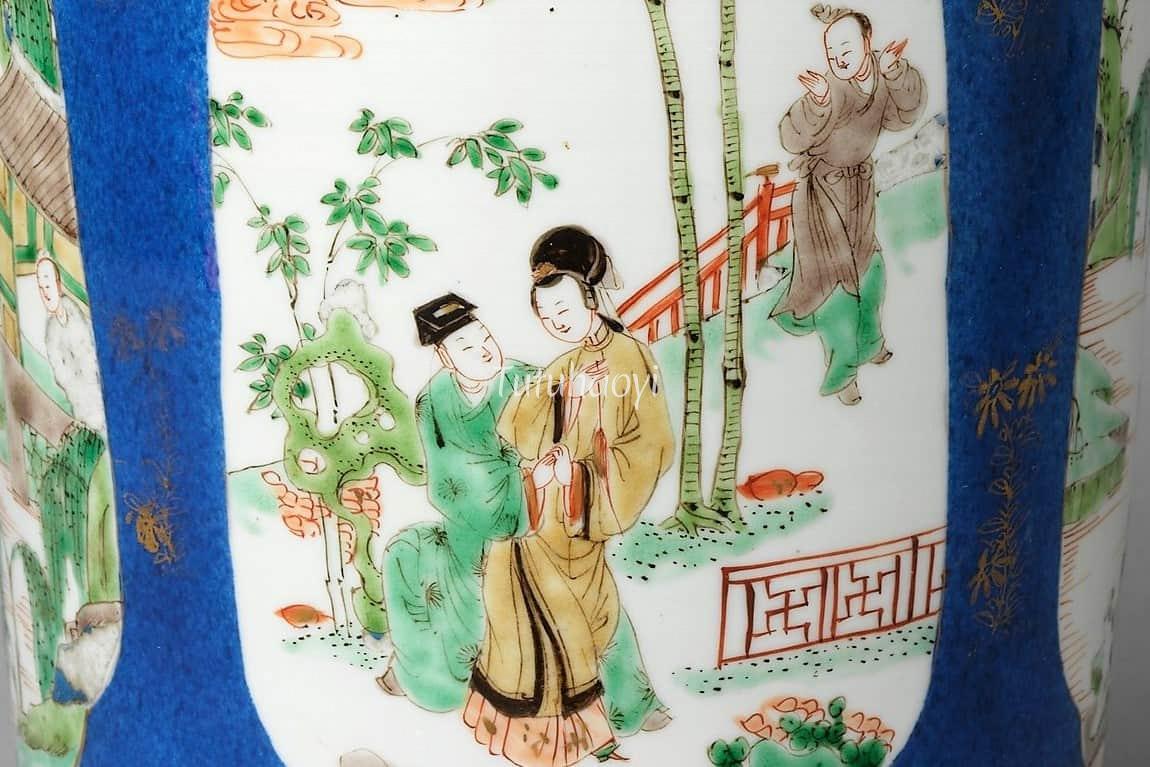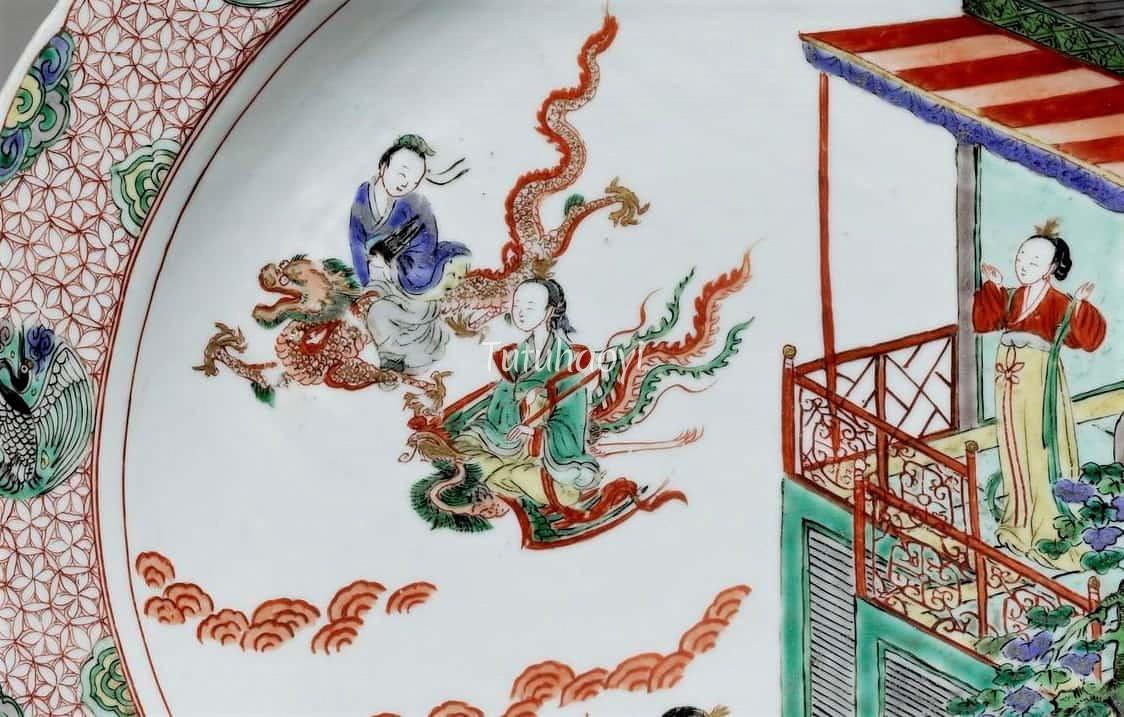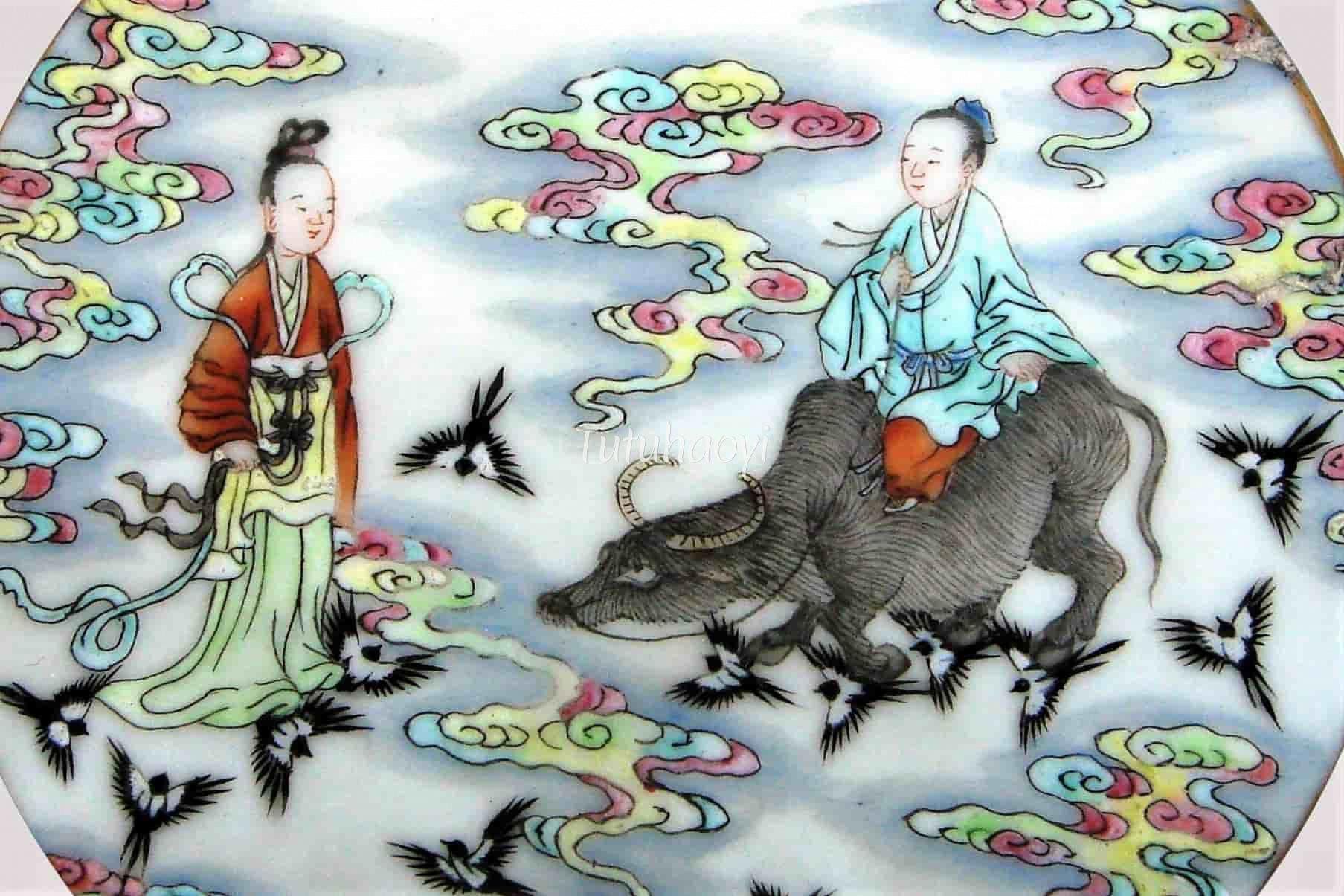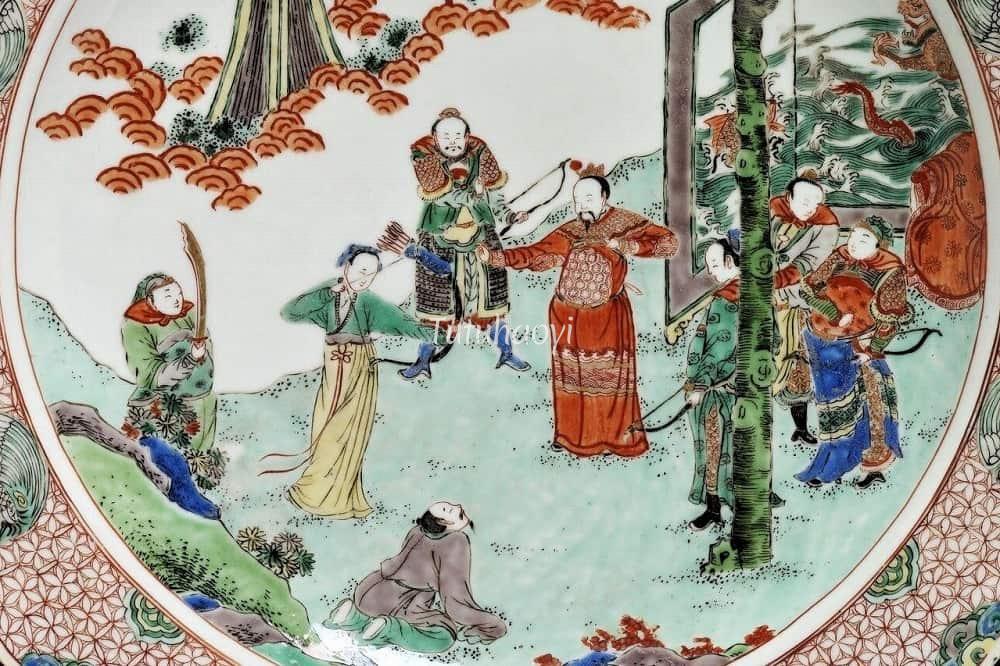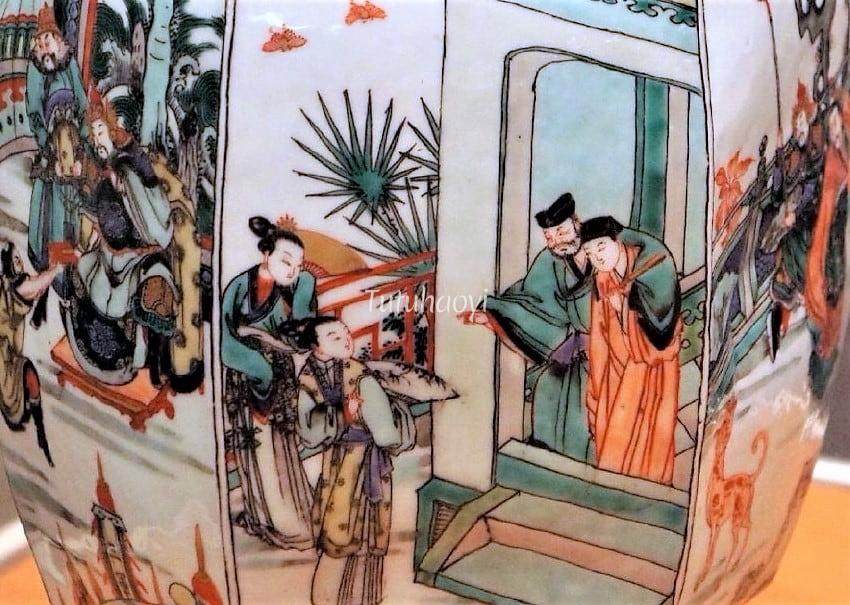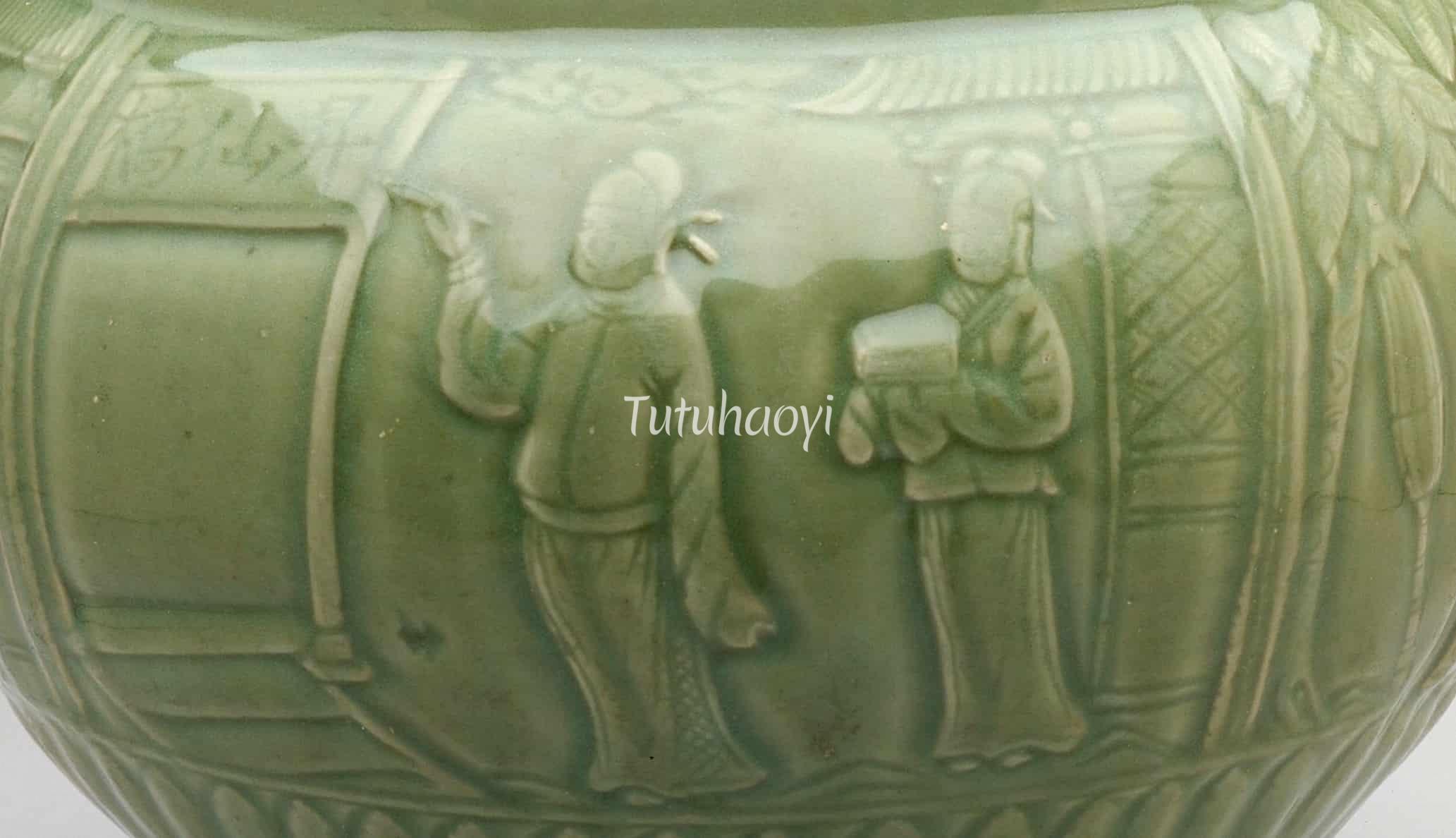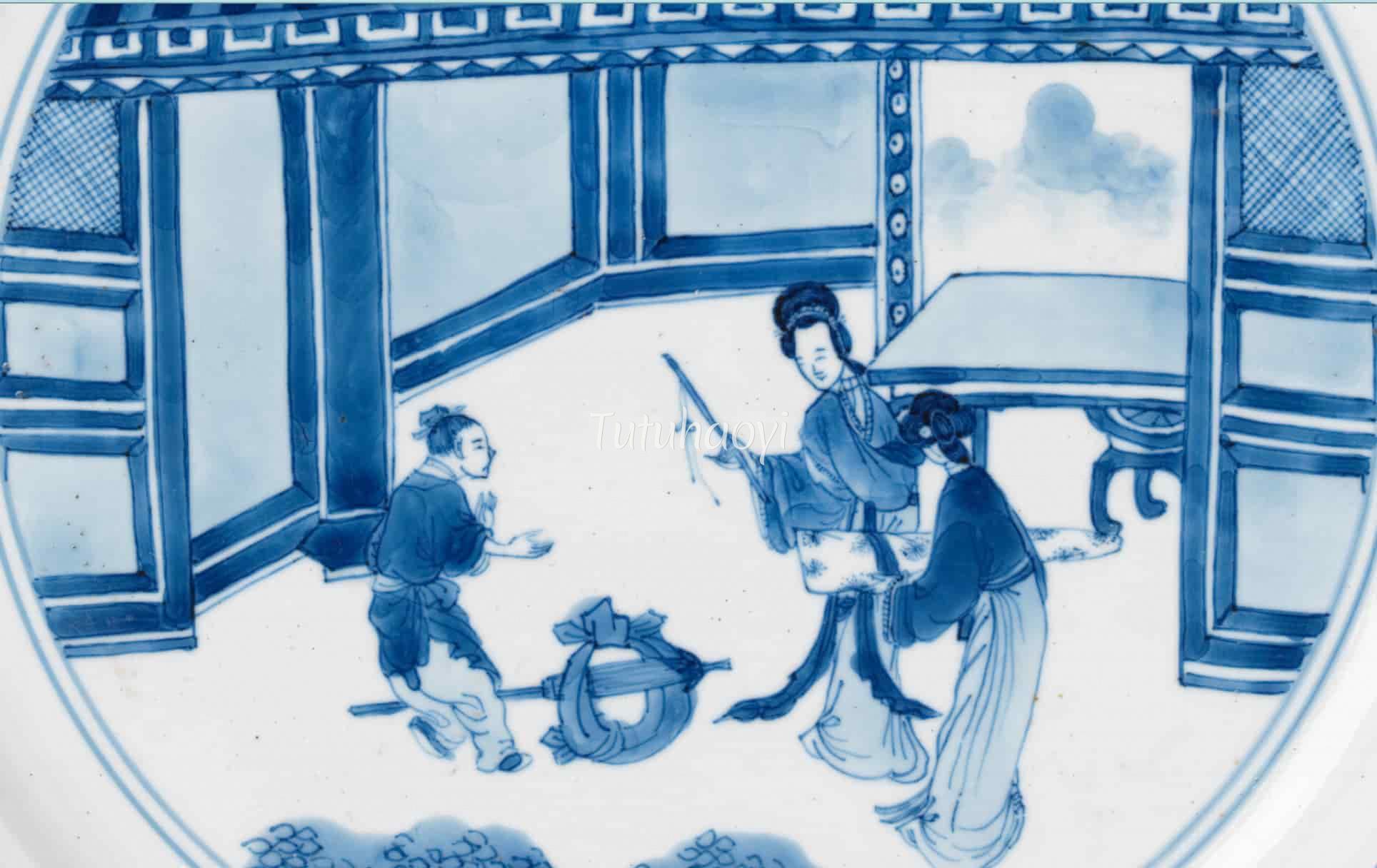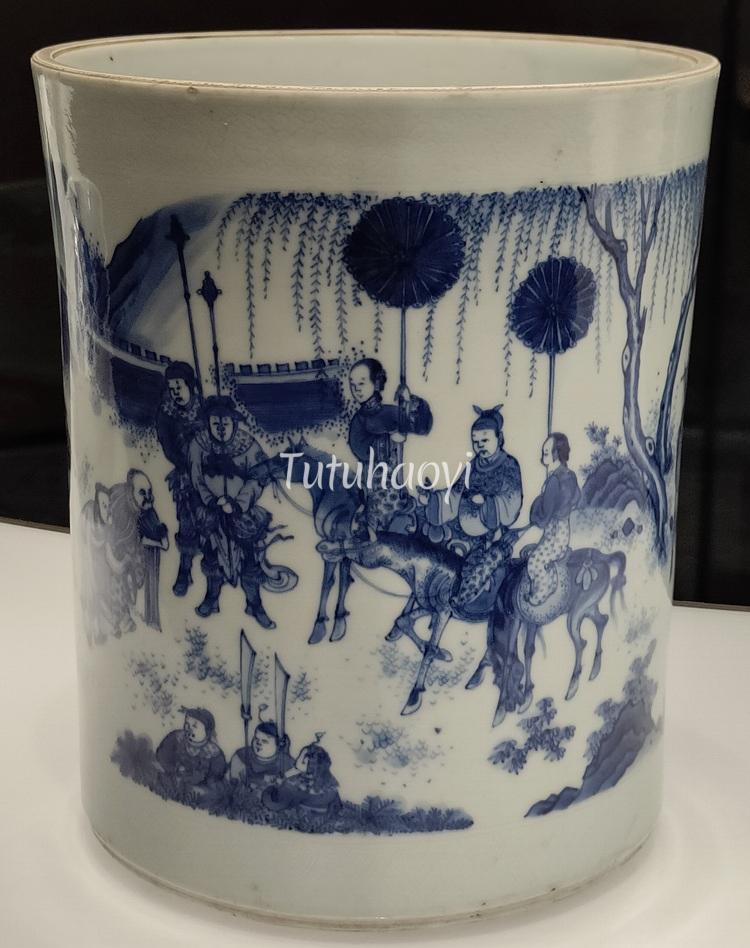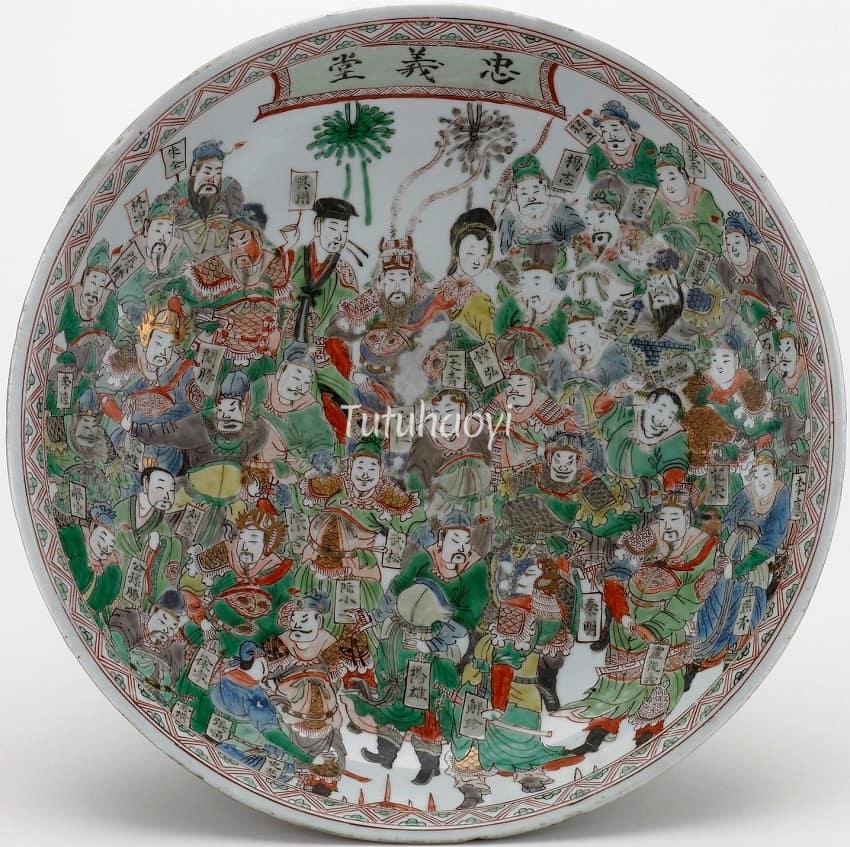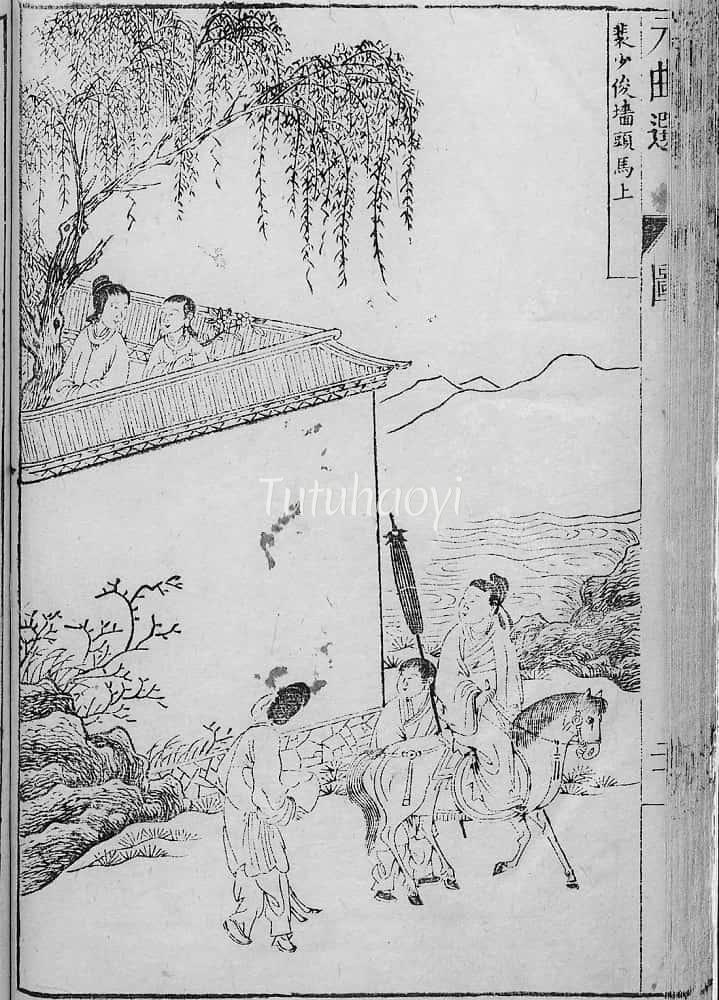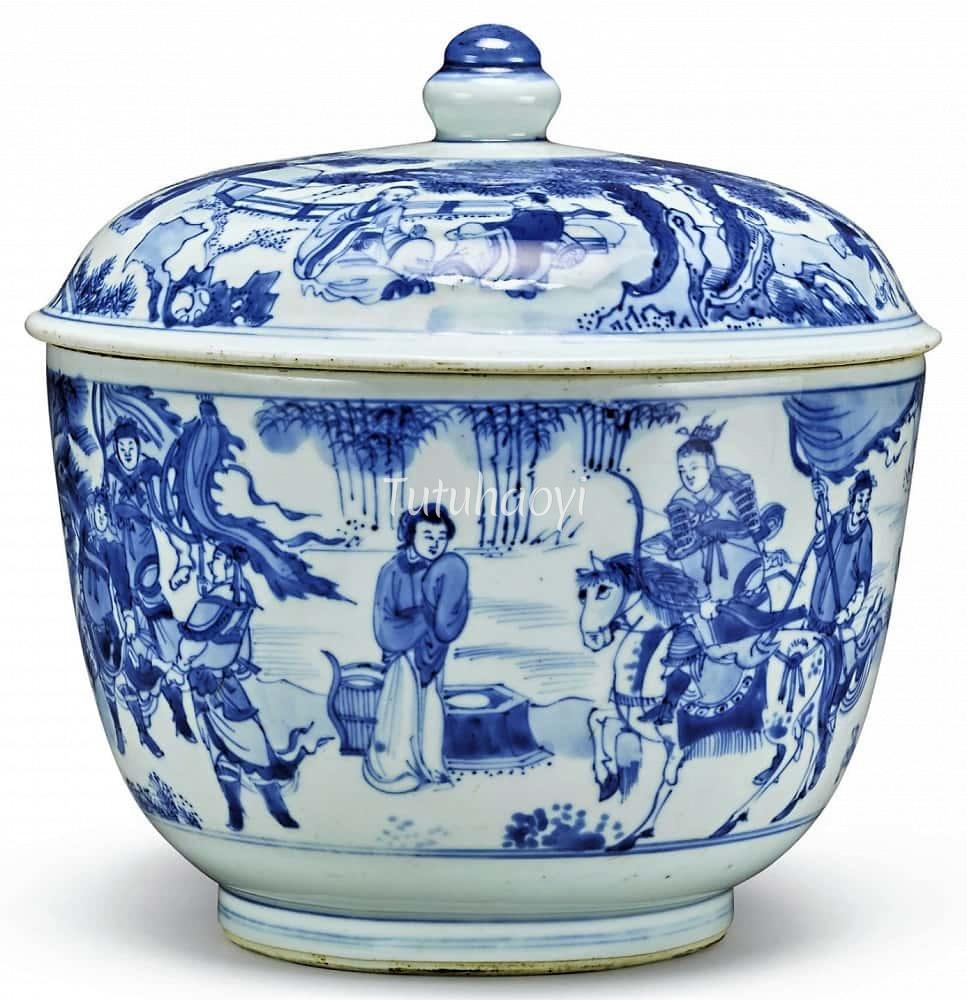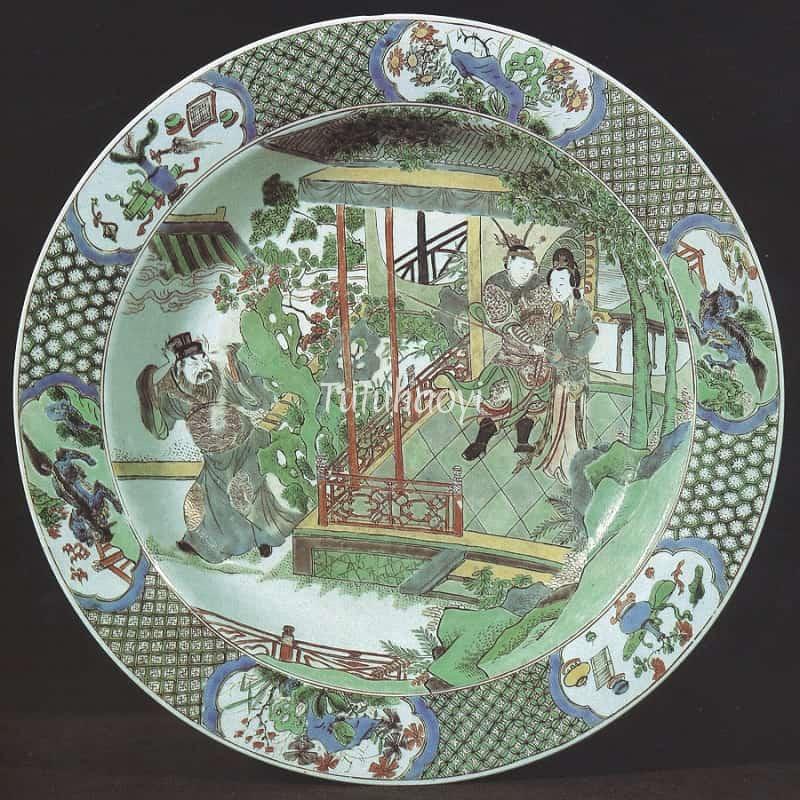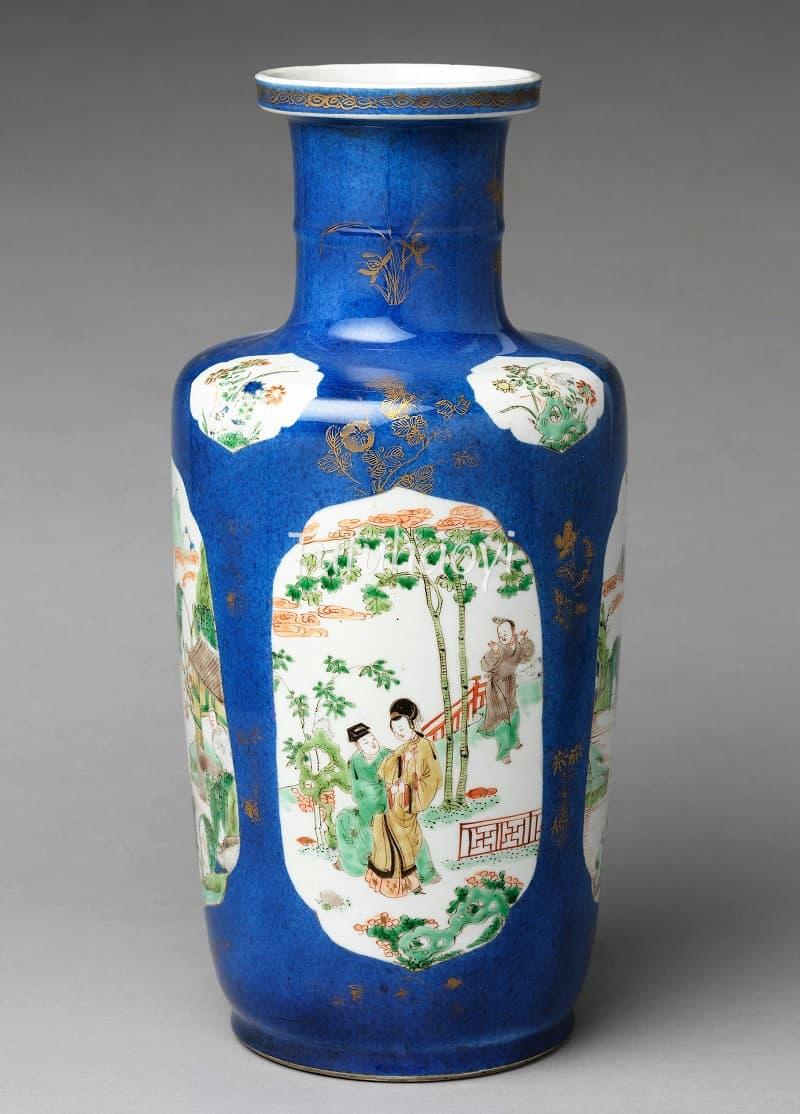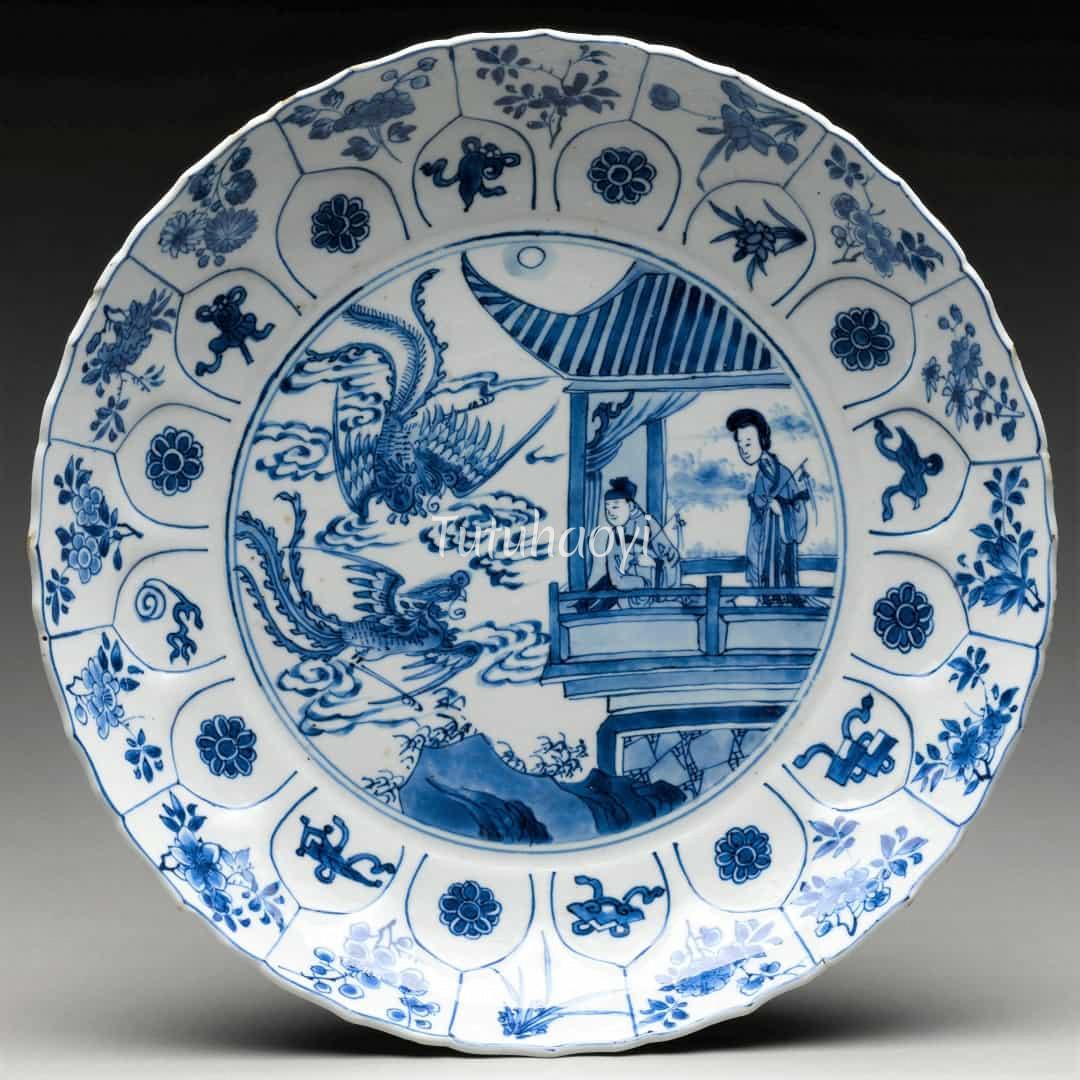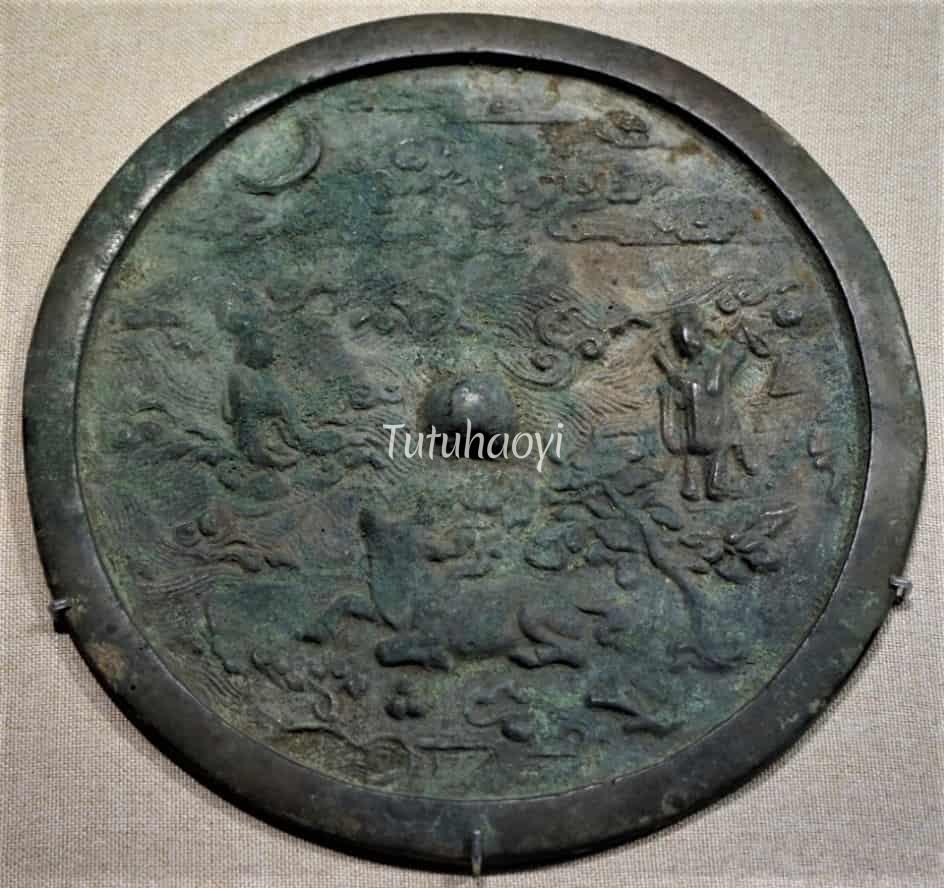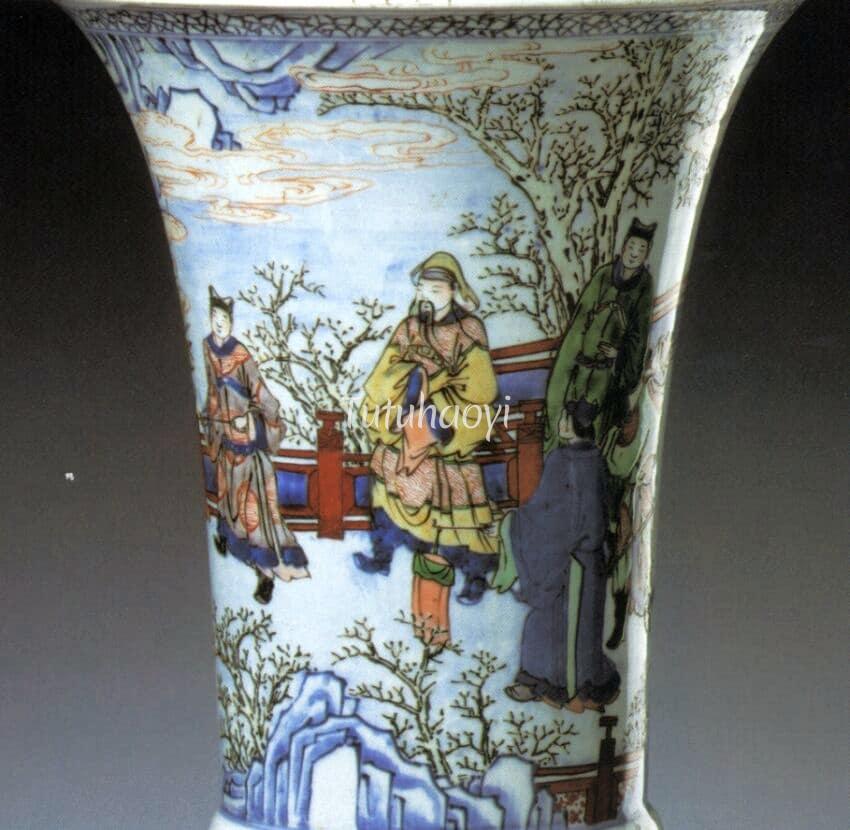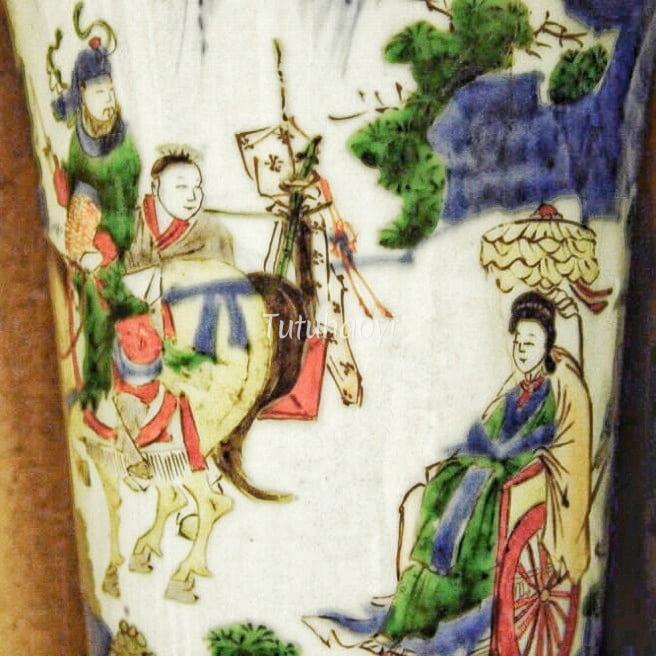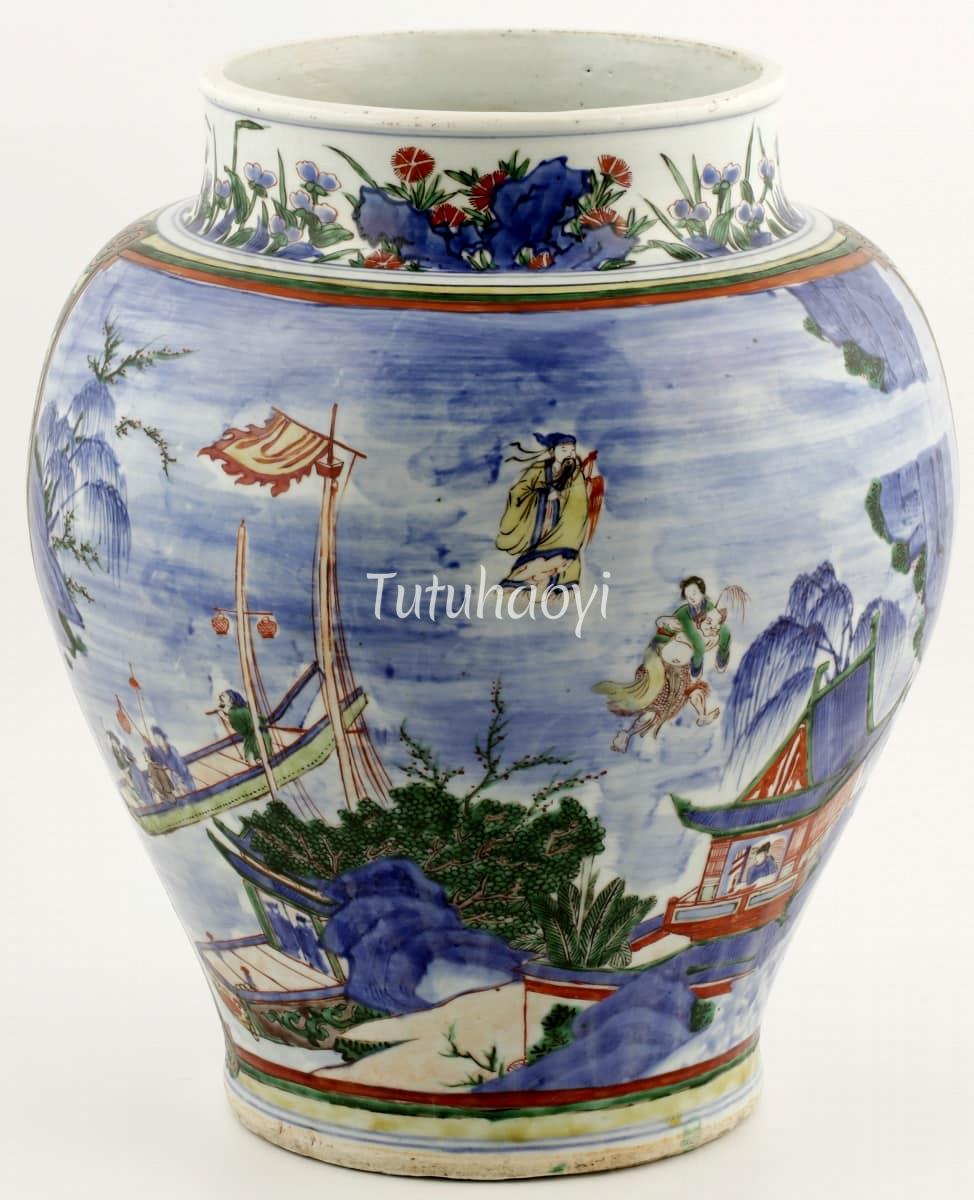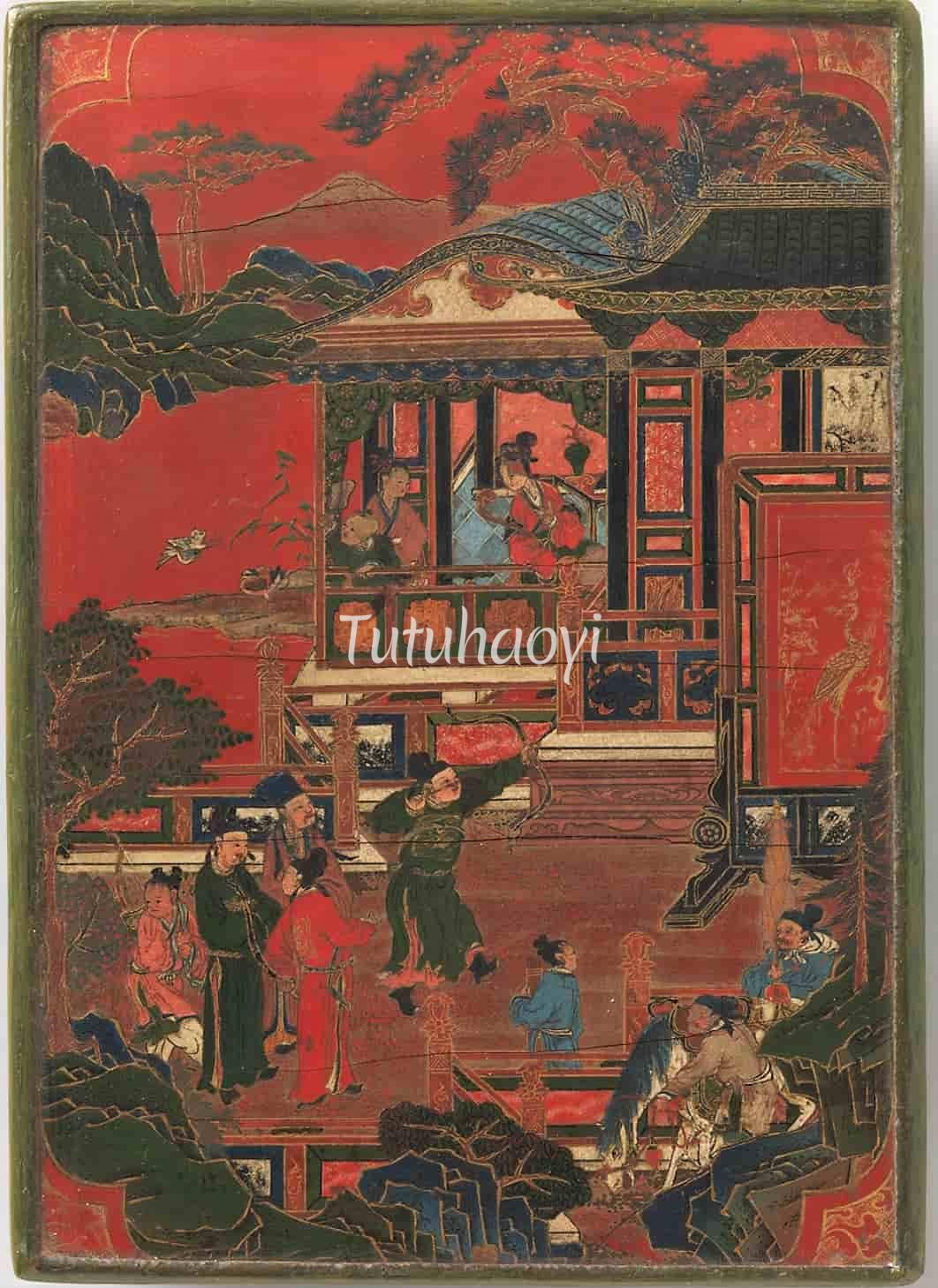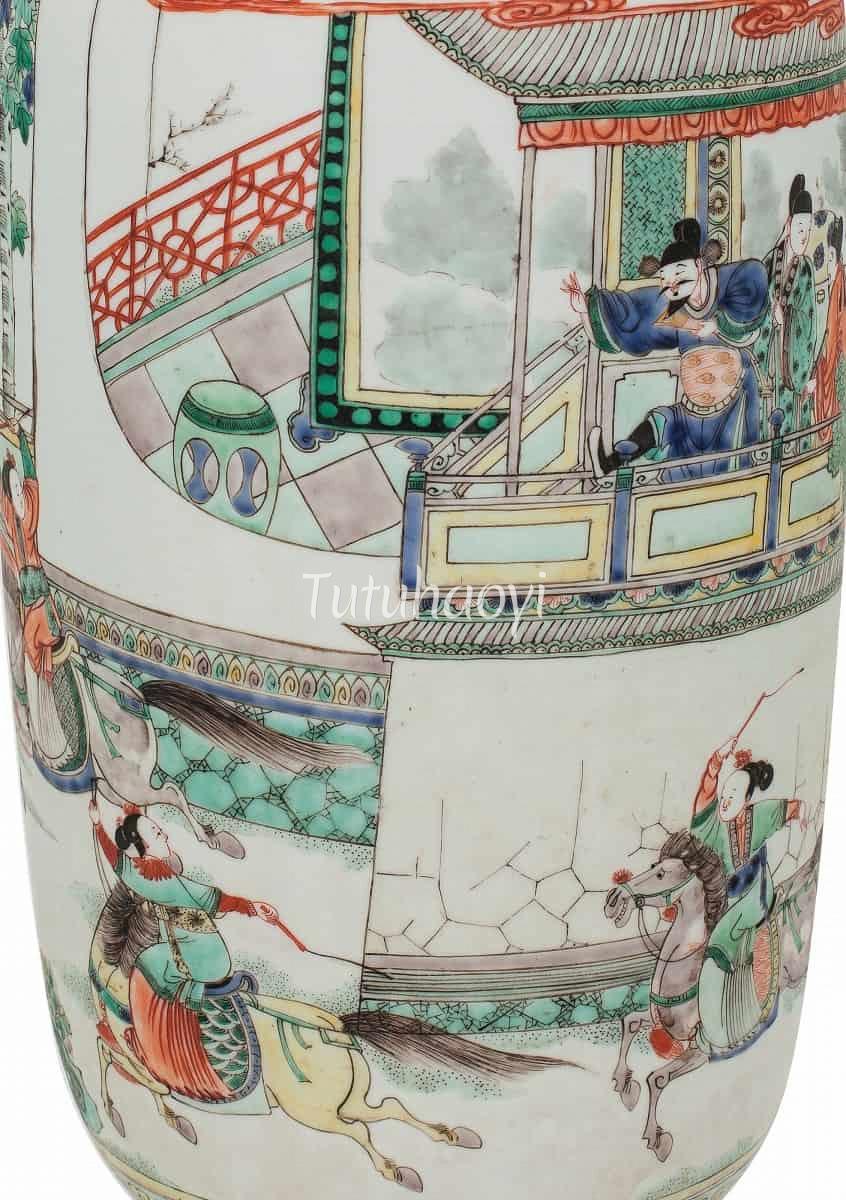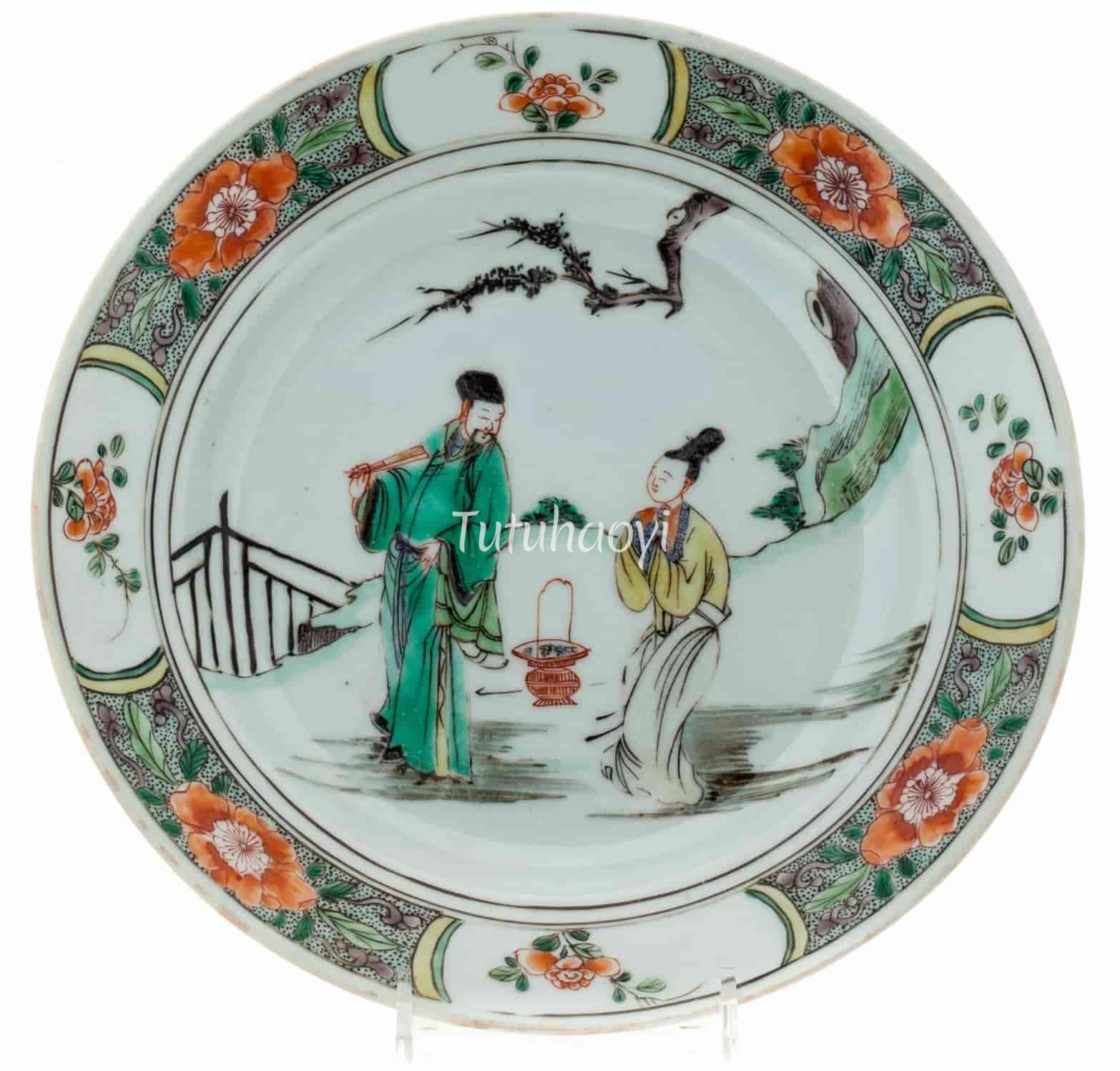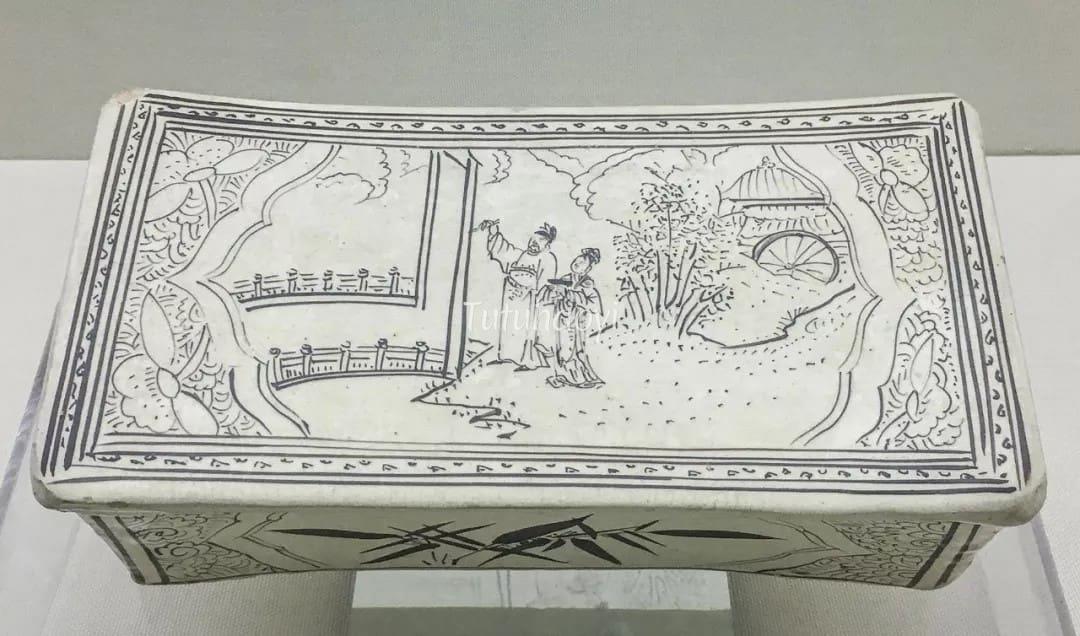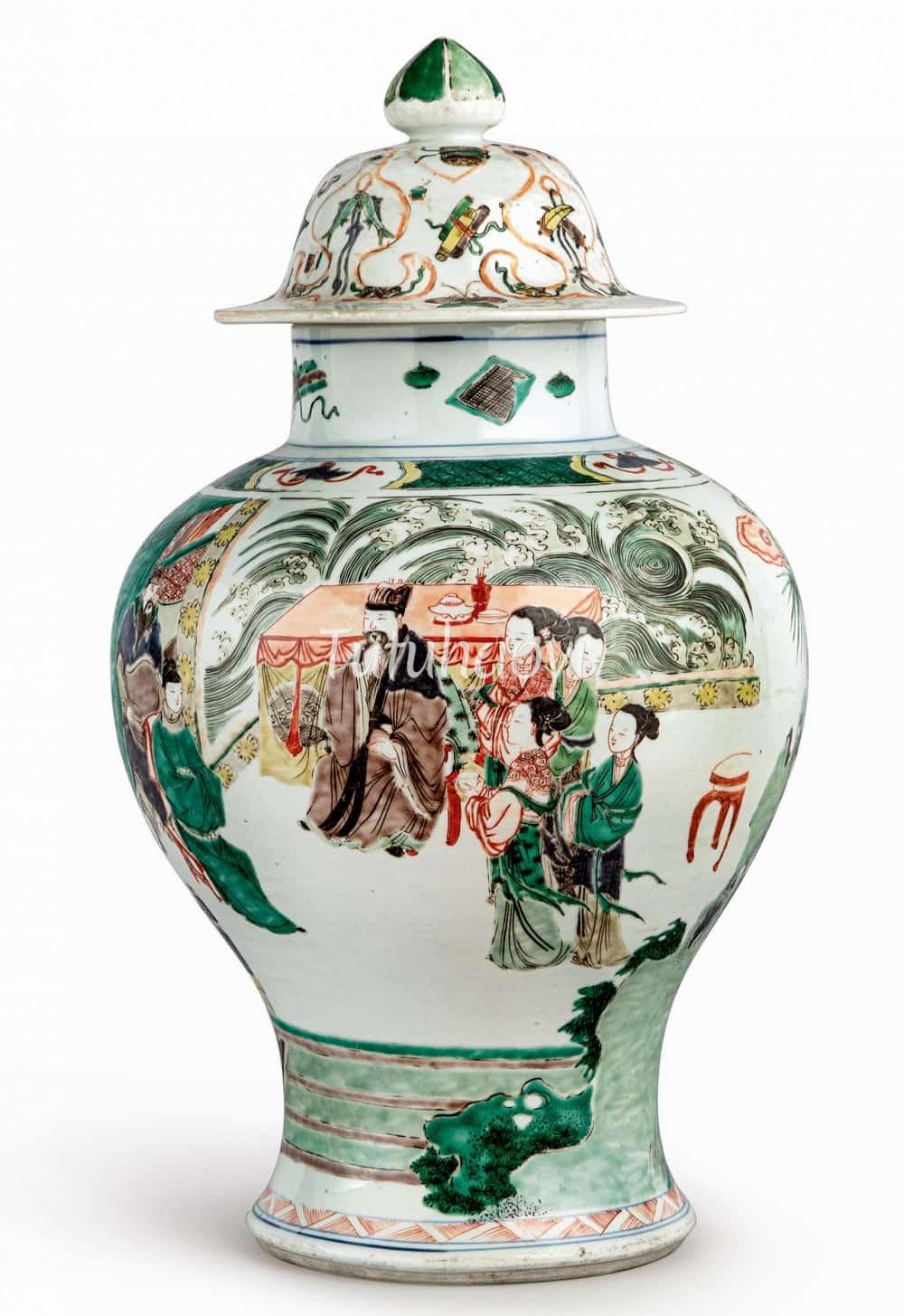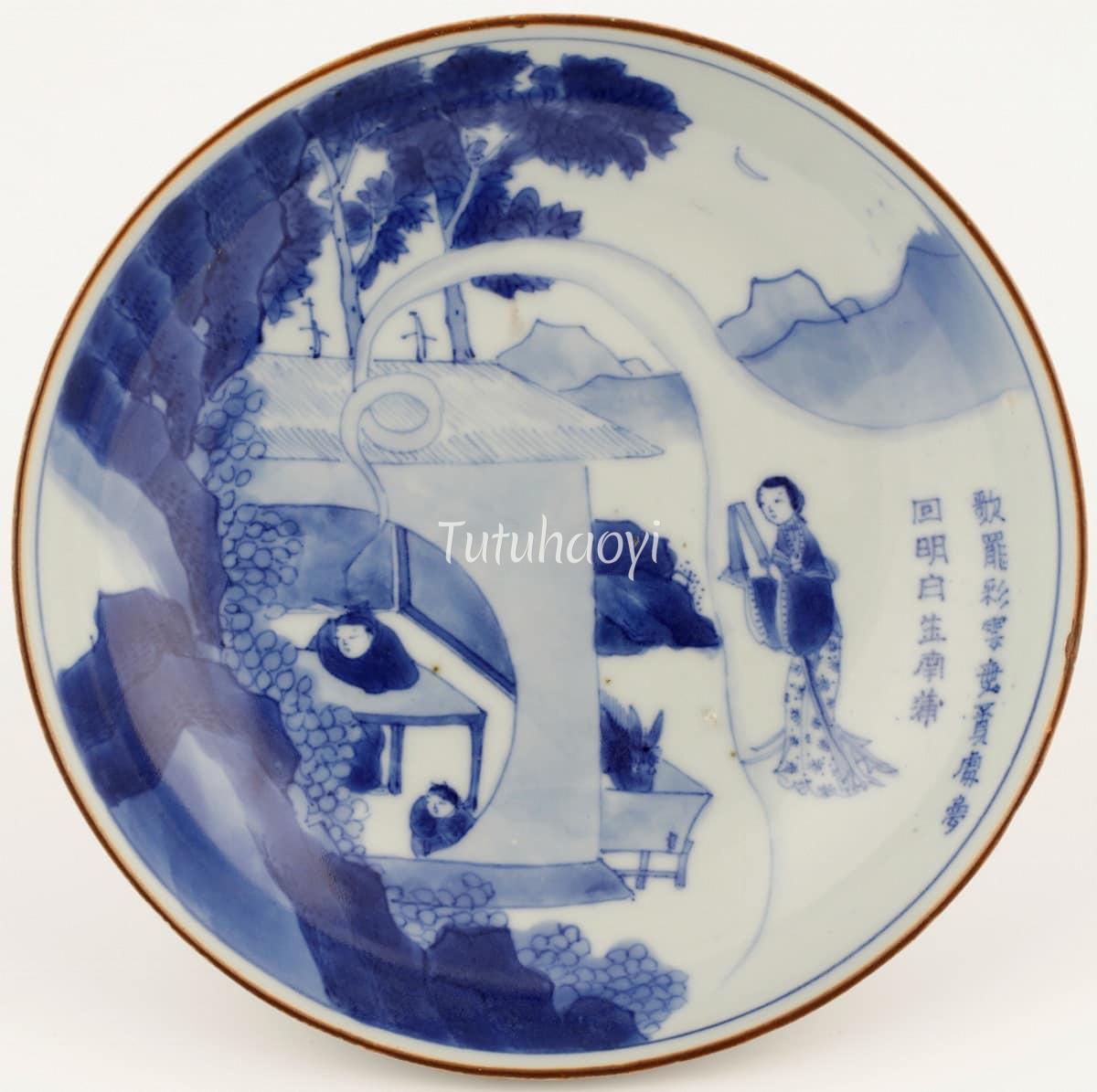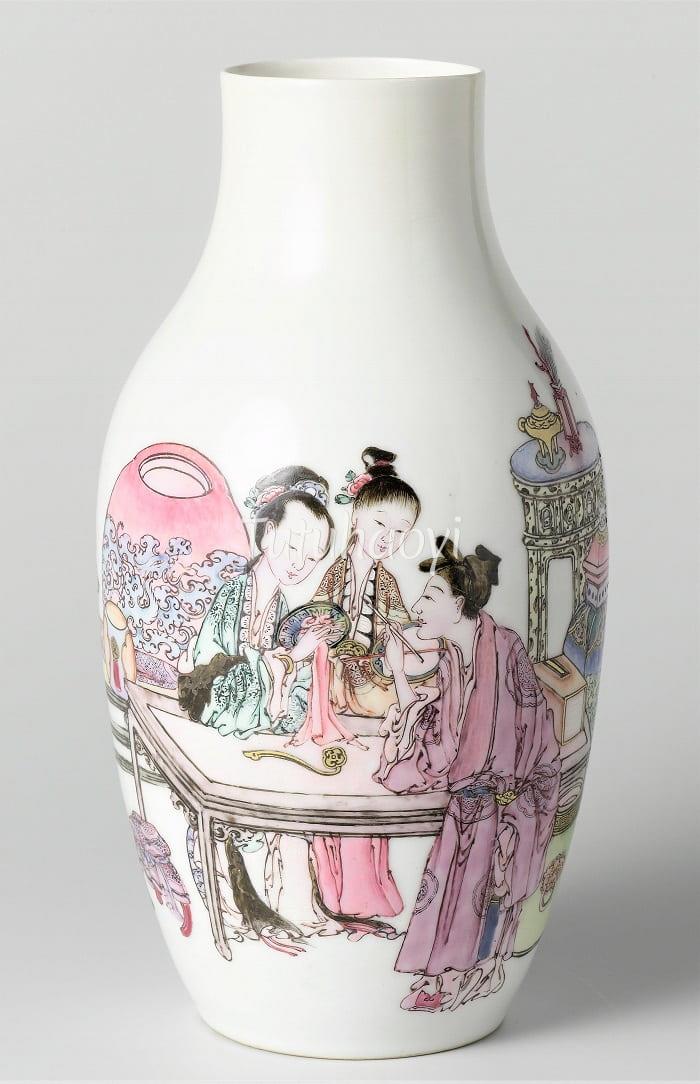Showing Results Containing
The Chinese Valentine’s Day, Qixi Festival (七夕节), is just around the corner. It falls on the seventh day of the seventh month of the traditional Chinese year. Dr Yibin Ni has conducted comprehensive research on this topic and has written an articl...
The story scene comes from a marvel play Legend of the Jade Hairpin, which is not to be confused with the scene in Romance of the Western Chamber. Read the following article to find out details of the story and how this figural scene is depicted.<...
Correctly identifying figures is crucial to deciphering an obscure story scene. Looking at this featured image, for example, some may think that the two figures in non-specific attires on a dragon and a phoenix are anonymous Daoist immortals. But ...
On the seventh day of the seventh month of the lunar Chinese year, young men and women will celebrate their traditional ‘Valentine’s Day’, Qixi Festival (七夕节). The custom can be traced back to an ancient story.
Congratulations on art historian Dr Yibin Ni’s new research into a rare story scene in Chinese pictorial art, which may have puzzled contemporary museum curators and porcelain collectors. Dr Ni has traced the art historical context in which this r...
This is a republication of Dr Yibin Ni’s article written in Chinese “明末清初瓷器上张生的‘凝视’和莺莺的挑战”(Gaze from Scholar Zhang and the response from Lady Cui Yingying: a discussion of figural depiction on porcelains from Late Ming to Early Qing dynasty)...
This blog is modified from Dr Yibin Ni’s research work first published on Antiques and Fine Art Magazine. The purpose is to appreciate how Chinese porcelain painters from ancient times passed on classical stories and illustrated traditional morals...
European descriptions of porcelain paintings that have story scenes tend to describe ‘figures and surroundings’, rather than identifying them. Thus, a large part of those beautiful stories intended by pot painters was lost in the description. Here...
Legend of the Epiphyllum (Tanhua Ji 昙花记) is a late Ming dynasty drama written by the accomplished scholar Tu Long (屠隆, 1542–1605), composed during the Wanli reign. Renowned for his achievements in literature, art, and Buddhist philosophy, Tu Long described this legendary play as a work intended ‘to expound the l...
Water Margin, also known as Outlaws of the Marsh or All Men Are Brothers, is a classic Chinese novel written during the Ming Dynasty. It is considered one of the Four Great Classical Novels of Chinese literature.
The authorship of the Water Margin has always been a subject of de...
This story scene originates from one of the four famous romantic plays in Yuan dynasty, Pei Shaojun on horseback meeting Li Qianjin over the garden wall (also known as On Horseback and over the Garden Wall) 裴少俊墙头马上, which was written by playwright Bai Pu (白朴 1226 – after 1306).
Pei Shaojun ...
This scene was from a popular play ‘The Story of the White Hare’ (Bai Tu Ji 白兔记) and was much admired during the Ming dynasty.
Liu Zhiyuan 刘知远, the hero of the play set during the turbulent Five Dynasties (907–960), became an orphan when he was a teenager. His affluent neighbour looked after him and later...
Dong Zhuo (董卓 d. 192), a tyrannic warlord rising to power at the end of the Han dynasty, caused great concern among courtiers and officials. Wang Yun (王允), the Minister Over the Masses (司徒 Situ), was entrusted to figure out a plan to bring him down. Dong Zhuo was particularly powerful because he managed to ally ...
Legend of the Jade Hairpin (Yu Zan Ji 玉簪记) is a Ming-dynasty ‘marvel play’ which was the major drama genre of the time. The play, consisting of thirty-three scenes, was written by Gao Lian (高濂 fl. 1573-1581) around 1580 and remained to be a popular classic for the following three hundred years. It is a Shakespea...
Duke Mu of the Qin State (秦穆公, died 621 BCE) was one of the so-called Five Hegemons (五霸 wuba) in the Spring and Autumn Period (770 – 476 BCE) (春秋 chunqiu). He had a daughter named ‘Nongyu (弄玉, meaning Playing Jade)’, who was a talented musician excelling at playing the sheng (笙 mouthorgan...
The seventh day of the seventh month of the traditional Chinese year is the Chinese ‘Valentine’s Day’, Qixi Festival (七夕节). The custom can be traced back to an ancient story about a weaver girl and a cowherd:
Once upon a time, one of the daughters of the Lord of the Heaven lived on the east side of the Mi...
Evidently, Zhao Kuangyin (赵匡胤 927–976), Emperor Taizu of the Song dynasty (宋太祖), often paid unofficial surprise visits to his courtiers. As a result, his ministers did not dare to change their official attire into casual wear even when they returned home from court. They had to be ready for imperial visits any time and d...
This scene is an episode from the Ming drama ‘The Story of the Girl Holding ...
The Ming-dynasty play The Story of the Blue Robe (青袍记 Qingpao ji, also called《梁氏父子传胪记》) tells the story of how Lv Dongbin (吕洞宾 Lü Dongbin or 吕纯阳), one of the Continue Reading
Li Yuan (李渊 566–635 CE) excelled at horse-riding, archery, and calligraphy as a young man. He was to be the future founder (reigned 618–626 CE) of the Tang dynasty (618–907 CE). Miss Dou was exceptionally smart and her father Dou Yi 窦毅, the governor of Dingzhou, was very particular about the quality of his future son-in-...
Emperor Yang of the Sui dynasty (隋炀帝, r. 606-18) is known for many achievements, such as linking the Yellow and Yangzi Rivers with the man-made Grand Canal, leading successful military campaigns expanding the Sui territory, and being accomplished in the arts. Despite those, Emperor Yang is also considered to have brought...
Qiuhu (秋胡), a native of the state of Lu during the Spring and Autumn period (770-476 BCE), was ordered to take up an official post in the state of Chen a scant five days after his marriage to Jiefu (洁妇), the ‘Loyal Wife’. Five years later, on his way back home, he encountered a woman by the roadside picking mulberry leav...
‘Sima Xiangru Inscribing on the Bridge Gateway (相如题桥)’ was a popular theme in theatre from at least the Song (960–1279) through to the Qing (1644–1911) dynasty. Sima Xiangru (司马相如) was a Western Han (202 BCE – 8 CE) scholar unsuccessful in making a career in civil services. However, Wang Ji, the magistrate of Linqiong co...
With strategic plans to restore the war-torn country back to order, the talented scholar Li Jing (李靖) was paying a visit to the powerful Lord Yang Su (杨素), who enjoyed luxurious ways of living and female company around him. To Li Jing’s disappointment, Lord Yang did not take his plans seriously. However, Red Fly Whisk (红...
A scholar official in Song dynasty Sima You (司马槱) dreamed of a beautiful girl presenting him the first half of a song, which he later developed into a full version called Huangjinlv (黄金缕). The girl was none other than a famous courtesan Su Xiaoxiao (苏小小) who lived by the Qiantang River and was in the local high ...
Zhang Chang (张敞, ?- 48 BCE) and his wife grew up in the same village. When they were both children, Zhang Chang once threw a pebble at his future wife and, unfortunately, the scratch left a scar on one of her eyebrows. Later, Zhang became a civil servant and learned that the girl he once hit with a pebble was unmarried b...
